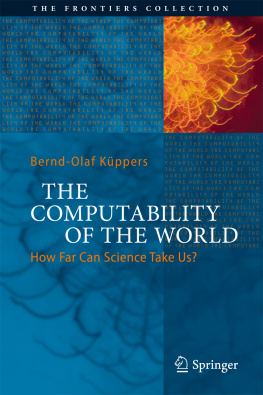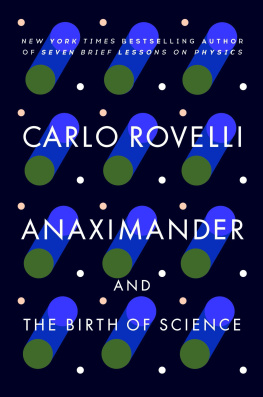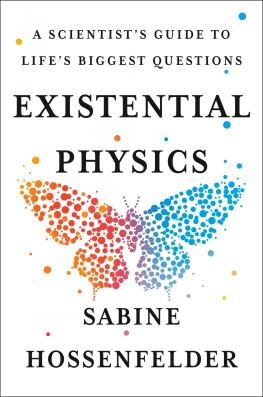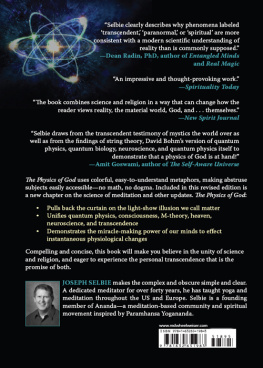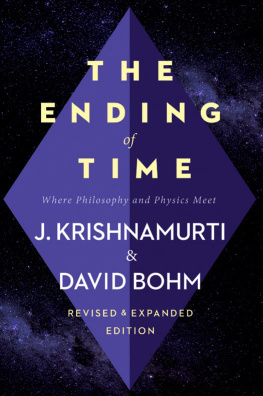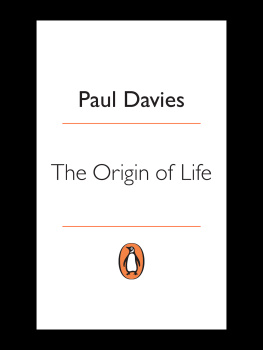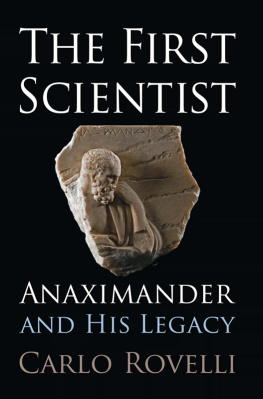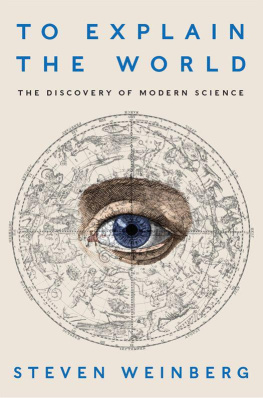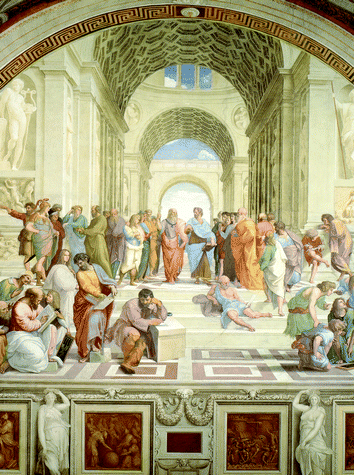In his famous fresco The School of Athens, Raphael showed the philosophers Plato and Aristotle engaged in disputation. Plato is pointing upwards to the superterrestrial world of ideas and Aristotle is pointing downwards to the manifest world of real objectsa scene symbolic of the towering question of philosophical reasoning: Is there an ideal world of absolute knowledge that is independent of any kind of experience, or is human knowledge always bound to the experience and critical analysis of the real world?
1.1 The Dream of Parmenides
It seems too good to be true: the idea of inalterable, timeless knowledge; a knowledge that does not depend upon changing observations and experiences, because it has its sole origin in the logic of rational thought; a knowledge that, nonetheless, allows all experience to be ordered within a grand, universal context; a knowledge that is given a priori and is conditioned by nothing but itself. In short: Knowledge that can claim for itself absolute certainty and validity.
Parmenides of Elea and the school of philosophers he founded were probably the first to entertain the vision, more than 2000 years ago, that it might be possible to attain an absolute knowledge of the world. With their effort to recognize the nature of true being, they initiated an understanding of the world according to which the phenomenal reality is merely the deceptive illusiveness of a true and unchangeable world. This hidden world of true being, Parmenides believed, is only accessible by pure reasoning.
Thus, right at the outset of Western philosophy, the idea coagulated that true knowledge of the world could only be arrived at by following the path of rational thought, a path that is free of any sensual perception, any observation or experience. In this way Parmenides laid the foundations of a philosophy, called metaphysics , which seeks to uncover the ultimate principles, causes and coherences of the world.
Parmenides claimed that the way towards the truth was revealed to him in a dream by the goddess Dike. This tale, however, served alone the purpose of justifying his assertion that metaphysical insights are superior to all forms of empirical knowledge. Only rational access to reality, Parmenides insisted, will lead to absolute truth, while empirical knowledge will always be deceptive and illusory.
Parmenides understanding of true being implies that reality is ordered according to rational principles and that true knowledge of this reality culminates in the strict deduction of these principles. Moreover, according to this view, there must not only be an over-arching principle of reason that lies at the bottom of all knowledge, but this principle must also be absolutely certain . Only on this presupposition can any metaphysical knowledge lay claim to being true, once for all time.
Parmenides justified his metaphysics with a statement that is already true because of its linguistic construction: the tautological statement being is . Proceeding from this statement, he developed his doctrine of true being in the form of a didactic poem.
The logic of his arguments can be rendered as following: The statement being is expresses a timeless truth, one that clearly does not admit variations in tense such as being has been or being will be . It follows in turn that being will never be extinguished, nor can it originate; it is eternal and unchangeable. Every movementthat means in ancient philosophy: every spatial or qualitative change of thingsmust therefore be regarded as a deceptive image of an empirical world, an image that distorts our view of true and unchangeable being.
Furthermore, the statement being is also implies its linguistic converse: non-being is not . From this statement Parmenides concluded that there is no empty space. Therefore, being must be seen as a continuum, which has no inner or outer boundaries. This led Parmenides to his final conclusion, that true being is not only unchangeable, but that it has further attributes like that of uniqueness, unity, indivisibility and boundlessness.
In the Eleatic school of philosophy , it was above all the logician Zenon who, with the help of sophisticated paradoxes, sought to prove that the true being put forward by Parmenides really is unchangeable, and that every movement within reality which seems to refute this conclusion is merely a delusion of the world that we perceive. To demonstrate this, he skilfully used the idea of the infinite, to show that our impressions of movement, multiplicity, divisibility and the like are deceptions, since they lead to irresolvable logical contradictions .
The abstruse pictures of reality engendered by the doctrine of true being were ultimately based upon the fact that logical truths alone cannot lead to meaningful statements about our experienceable reality. Rather, logical truths apply for all conceivable worlds, so that a concrete reference to our real world has to be established in a further step. For Parmenides this was accomplished in the rider non-being is not , from which he deduced that there is no empty space. However, this is only justified, if being is to be conceived of as something that is material. Yet precisely this (tacit) assumptionthat being can only take on material formis among the arbitrary constructions that in the end lead to the inconsistencies of the Parmenidean world.
It is interesting to note that this weak point in the ontology of Parmenides was already pointed out by Aristotle , who critised Parmenides simple linguistic usage of the word being. Instead, Aristotle introduced a distinction between that which is (actuality) and that which might be (potentiality). This he ultimately raised to a point of departure for his own metaphysics , in which he differs clearly from that of the Eleates.
1.2 In Search of the Archimedean Point of Knowledge
Despite the terminological difficulties with respect to the concept of true being, which already became apparent in ancient philosophy, the vision that one can arrive at absolute knowledge has persisted right down to modern times. It was sustained, just as Parmenides intended it, by the conviction that such knowledge must be based solely upon rational thought, which is free from the deceptions practised on us by sensation and experience.
The paradigm for the rational reconstruction of reality has been the so-called deductive method , which had been applied in a rigorous way by the mathematician Euclid for the axiomatic foundations of geometry. Ideallythis was the leading thought of modern rationalismtrue knowledge of reality should, as in geometry, be deducible in its entirety from a highest, and in itself irrefutable, principle. This principle was assumed not only to be the ultimate reference point of all knowledge, but also to be capable of providing a justification for the claim that the knowledge deduced from it is coherent and true.
The modern search for rational knowledge was mainly influenced by thinkers like Descartes , Spinoza and Leibniz . However, the rational systems which were developed in the 17th and 18th centuries revealed substantial differences regarding the question of how the form and the content of the highest principle of knowledge are to be conceived of.

